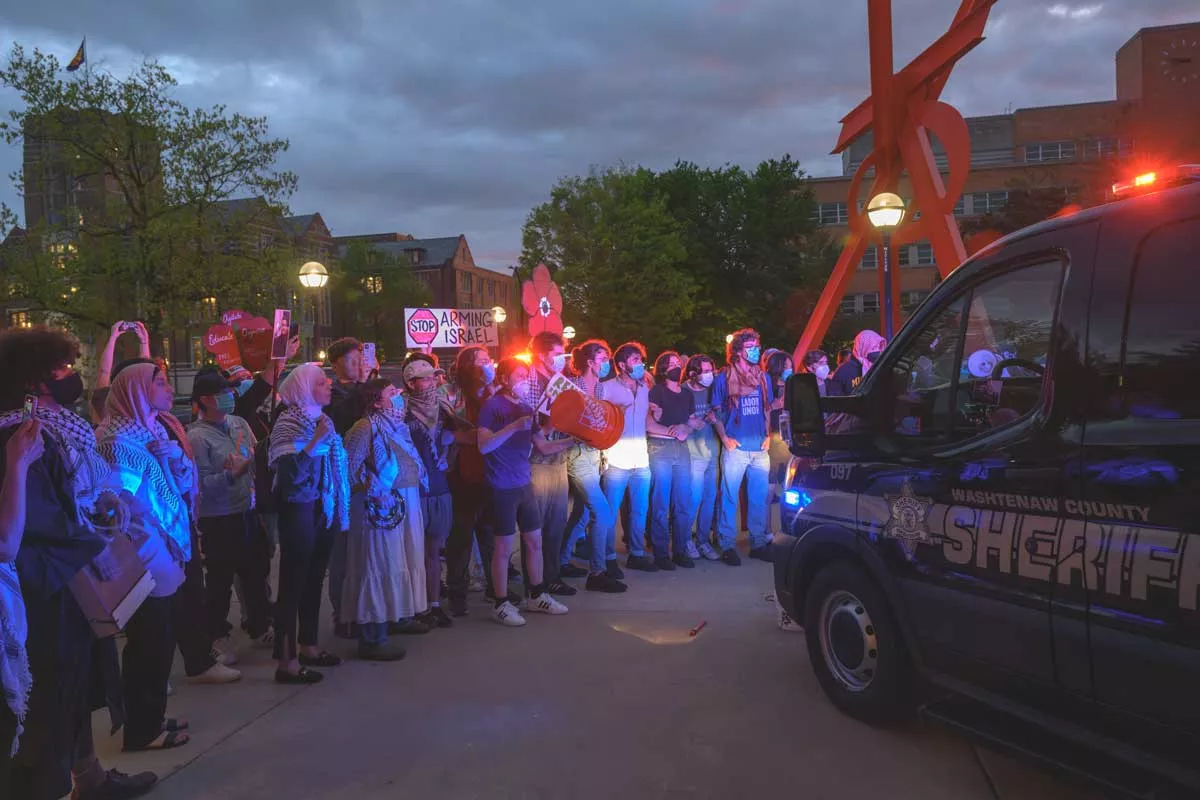A Michigan judge has granted a permanent injunction against three of the state’s remaining abortion restrictions, declaring they violate the Reproductive Freedom for All constitutional amendment voters passed in 2022.
The court’s ruling affirms the amendment established even broader reproductive rights for Michigan citizens than they had under Roe v. Wade, and eliminates a 24-hour mandatory waiting period, a mandatory informed consent form, and a ban on advanced practice clinicians performing abortions. The court had previously granted a temporary injunction against these three restrictions last year.
Tuesday’s ruling did, however, uphold the legality of one of the laws challenged by the plaintiffs, Northland Family Planning Centers and Medical Students for Choice: a law requiring abortion providers to counsel and screen patients for “coercion to abortion,” and requiring clinics post notices that it’s illegal in Michigan to coerce someone to have an abortion.
Abortion rights supporters argued the restrictions were medically unnecessary and intended to create barriers to abortion.
“It’s about time that these unnecessary and stigmatizing barriers to care are finally thrown out for good,” said Renee Chelian, executive director of Northland Family Planning Centers, said in a press release Tuesday. Northland Family Planning filed the lawsuit last year with Medical Students for Choice, along with the Center for Reproductive Rights.
“Our patients no longer have to worry that they may not be able to get the time-sensitive care they need. These restrictions are an insult to our patients, who know what’s best for themselves,” Chelian said.
But abortion rights opponents, who campaigned against the 2022 ballot proposal, said the ruling was “bad news for women.”
“At the same time, abortion complications have skyrocketed, removing standardized informed consent about abortion procedures, possible complications, and alternatives to abortion is a disservice to women,” Genevieve Marnon of Right to Life of Michigan said via email.
State data shows that in 2023, “total immediate complications” following an abortion occurred at an average rate of 5.1 for every 10,000 abortions performed. Between 2020-2022, before the constitutional amendment, the average rate was 1.6 for for every 10,000 abortions performed. Both are far below the most recent data available for complications following hospital deliveries. The state abolished its mandatory abortion reporting system in 2024.
“The injunction demonstrates how radical and abortion obsessed our state has become,” Marnon said.
What did these abortion restrictions mean?
On paper, the restrictions being challenged sound pretty straight-forward: only physicians can provide abortions, and patients have to sign an informed consent form and wait 24 hours.
But abortion providers said at least 150 people a month would miss their appointments, because patients would make a mistake with the paperwork process required to meet the state’s 24-hour mandatory waiting period and consent form. That includes patients who’ve increasingly been traveling from out-of-state since the U.S. Supreme Court overturned Roe v. Wade in 2022.
In practice, the waiting period and informed consent requirements have been combined into a single form, accessible only through a state website, that patients had to sign no more than two weeks, but no less than 24 hours, before their appointment, then print the time-stamped form and bring it to their appointment.
Renee Chelian, the founder and executive director of Northland’s clinics, testified about a patient who “came in at 23.6 weeks (the legal cut-off in Michigan) but who had not printed the time-stamped form from the DHHS website,” the Michigan Court of Claims Judge Sima G. Patel wrote in the order issued Tuesday. That patient had to be referred to providers in other states, because Northland “could not legally provide the service the next day.”
Other patients were “denied a medication abortion” (which is an option in the first 11 weeks of pregnancy) and instead were “forced to undergo a more invasive procedure with higher risk because of the 24-hour delay,” the order said.
The judge cited figures provided by Chelian estimating “that approximately 10 patients were turned away each month for failure to provide” the required forms.
The court ruled that the 24-hour mandatory waiting period “burdens and infringes on patients’ rights to reproductive freedom” by “increasing costs, prolonging wait times, increasing the risk that a patient will have to disclose their decision to others, and potentially forcing the patient to forgo a medication about for a more invasive procedure.”
Other materials patients were required to review, which included information about contraception and fetal development, are “coercive and stigmatizing,” the court ruled.
And the limitation on abortion providers, which effectively bans advanced practice clinicians like nurse practitioners from providing abortions “arbitrarily limits abortion providers to physicians only,” according to the ruling. That “exacerbates existing provider shortages, leading to large swathes of Michigan without access to nearby abortion care.”
But the judge disagreed with plaintiffs that state requirements to screen for someone being coerced to get an abortion “burden or infringe” on a patient’s access to the procedure, as “nothing in the statutes requires providers to ask specific or direct questions” and providers can “tailor their questions and interact with patients in an organic way.”
What the ruling means for future abortion battles
Since Michigan voters passed some of the broadest reproductive rights in the nation, numerous other states have followed suit. But Michigan has also illustrated how it’s one thing to have those rights on paper, while in reality, figuring out what they mean in practice requires years of legislative and legal battles.
Democrats have previously tried, and failed, to get several of these restrictions overturned in Lansing. And that was even when their party controlled all three branches of state government. Since then, abortion rights supporters have turned to the courts as the next-best option, in this case as well as others.
But abortion rights opponents say Michigan voters never intended to create rights beyond those protected under Roe, and point to efforts to repeal the state’s ban on Medicaid funding for abortions and parental consent laws as “radical” and out-of-step with the majority.
In this ruling, the court specifically lays out how Michigan’s constitutional amendment provides abortion protections beyond what Roe guaranteed. “Michigan voters dramatically changed the Michigan Constitution by adopting the RFFA,” the judge wrote.



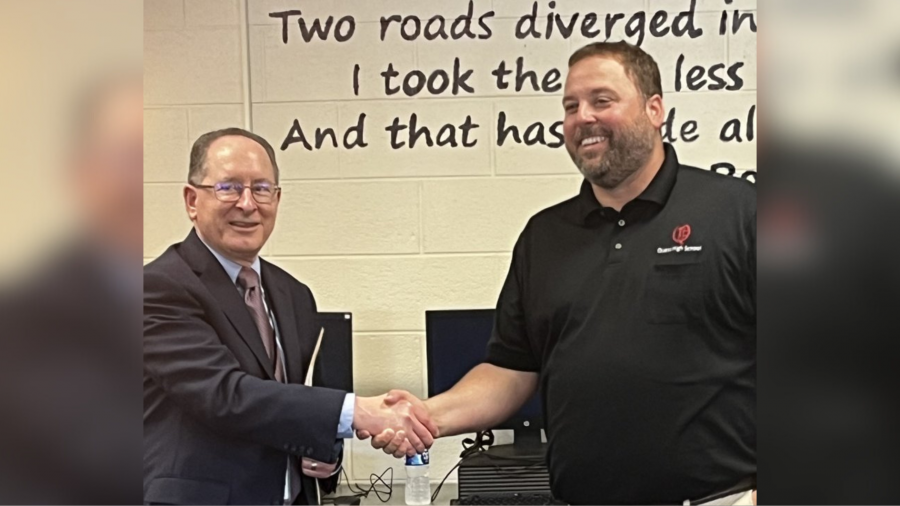



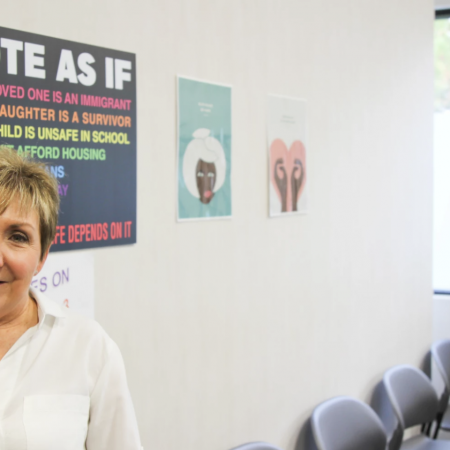


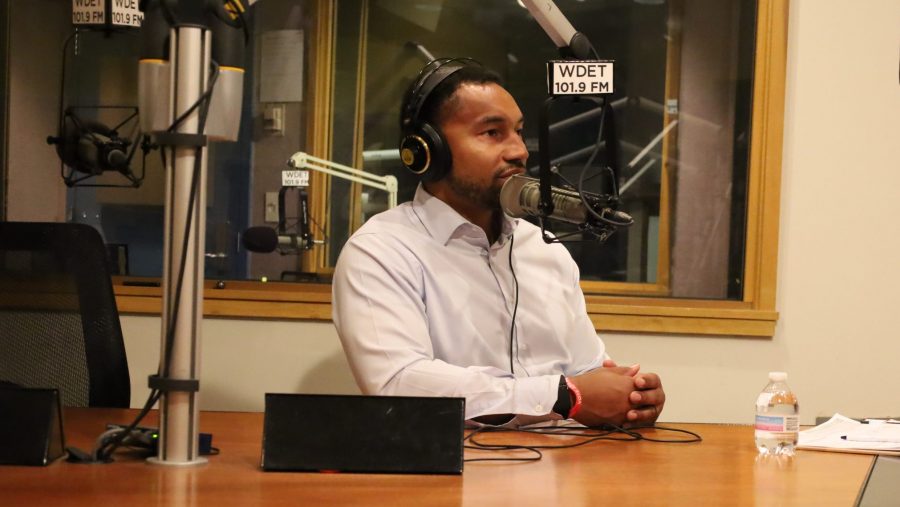


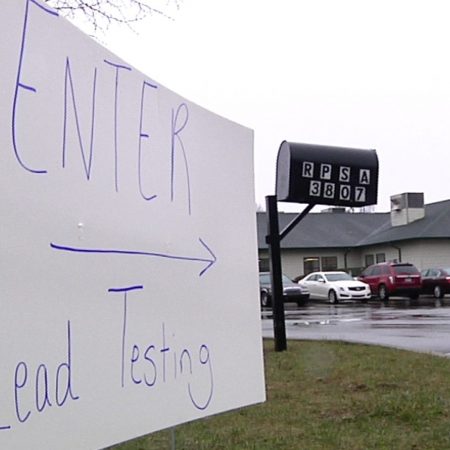
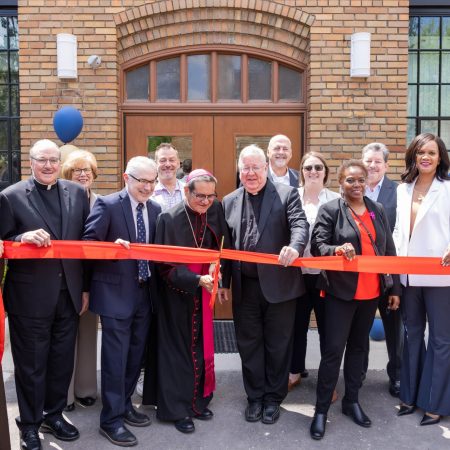
 Michigan Attorney General Dana Nessel lashed out at critics and made a series of inaccurate or misleading claims during a Wednesday town hall on hate crimes and extremism in West Bloomfield Township, where she defended her handling of pro-Palestinian protesters and vowed to aggressively pursue new cases tied to the movement. Nessel’s 16-minute talk marked her most expansive public defense of her decision to prosecute University of Michigan protesters and ultimately to drop the charges after facing months of backlash from civil rights groups, students, and progressives within her own party.
Michigan Attorney General Dana Nessel lashed out at critics and made a series of inaccurate or misleading claims during a Wednesday town hall on hate crimes and extremism in West Bloomfield Township, where she defended her handling of pro-Palestinian protesters and vowed to aggressively pursue new cases tied to the movement. Nessel’s 16-minute talk marked her most expansive public defense of her decision to prosecute University of Michigan protesters and ultimately to drop the charges after facing months of backlash from civil rights groups, students, and progressives within her own party.


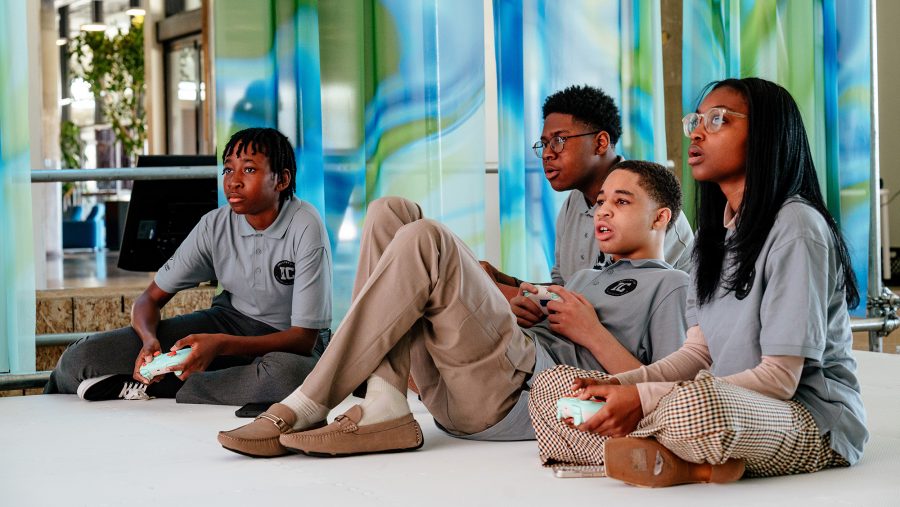


 Proposed federal Medicaid cuts could strip health care from 750,000 Michiganders and drain billions of dollars from the state’s hospitals, threatening access to care for pregnant women, people with disabilities, and residents in rural areas, according to a new report from the Michigan Department of Health and Human Services. The report, released Friday by Gov. Gretchen Whitmer’s office, warns that Republican-backed proposals to slash $880 billion from Medicaid nationwide would cause “undue hardship” for the state’s most vulnerable residents and undermine Michigan’s health care system and economy.
Proposed federal Medicaid cuts could strip health care from 750,000 Michiganders and drain billions of dollars from the state’s hospitals, threatening access to care for pregnant women, people with disabilities, and residents in rural areas, according to a new report from the Michigan Department of Health and Human Services. The report, released Friday by Gov. Gretchen Whitmer’s office, warns that Republican-backed proposals to slash $880 billion from Medicaid nationwide would cause “undue hardship” for the state’s most vulnerable residents and undermine Michigan’s health care system and economy.

 The family of Patrick Lyoya pledged Thursday to continue fighting for justice after a Kent County jury failed to reach a verdict in the criminal trial of former Grand Rapids Police Officer Christopher Schurr, prompting a mistrial. At a press conference hours after the mistrial was declared, Lyoya’s parents expressed disappointment and pain, saying Schurr showed no remorse for fatally shooting their son in the back of the head during a traffic stop in April 2022.
The family of Patrick Lyoya pledged Thursday to continue fighting for justice after a Kent County jury failed to reach a verdict in the criminal trial of former Grand Rapids Police Officer Christopher Schurr, prompting a mistrial. At a press conference hours after the mistrial was declared, Lyoya’s parents expressed disappointment and pain, saying Schurr showed no remorse for fatally shooting their son in the back of the head during a traffic stop in April 2022.

 Michigan’s prison population has fallen to its lowest level in more than three decades, and state officials say the decline is no accident. The Michigan Department of Corrections (MDOC) reported that 32,778 people were incarcerated statewide at the end of 2024, down more than 18,700 from a peak of over 51,000 in 2007. The decline is part of a broader trend driven by fewer new court commitments, expanded parole efforts, and a sharp drop in people sent back to prison for technical violations, according to state officials.
Michigan’s prison population has fallen to its lowest level in more than three decades, and state officials say the decline is no accident. The Michigan Department of Corrections (MDOC) reported that 32,778 people were incarcerated statewide at the end of 2024, down more than 18,700 from a peak of over 51,000 in 2007. The decline is part of a broader trend driven by fewer new court commitments, expanded parole efforts, and a sharp drop in people sent back to prison for technical violations, according to state officials.


 More than 500 incarcerated women at Michigan’s only women’s prison are suing the state for $500 million, alleging they were illegally recorded during strip searches and other moments when they undressed in what attorneys are calling one of the most egregious privacy violations in the country. The lawsuit, filed Monday in Washtenaw County Circuit Court, accuses Michigan Department of Corrections officials of directing staff at Women’s Huron Valley Correctional Facility to use body cameras during routine strip searches, a practice not employed in any other state, according to the complaint.
More than 500 incarcerated women at Michigan’s only women’s prison are suing the state for $500 million, alleging they were illegally recorded during strip searches and other moments when they undressed in what attorneys are calling one of the most egregious privacy violations in the country. The lawsuit, filed Monday in Washtenaw County Circuit Court, accuses Michigan Department of Corrections officials of directing staff at Women’s Huron Valley Correctional Facility to use body cameras during routine strip searches, a practice not employed in any other state, according to the complaint.

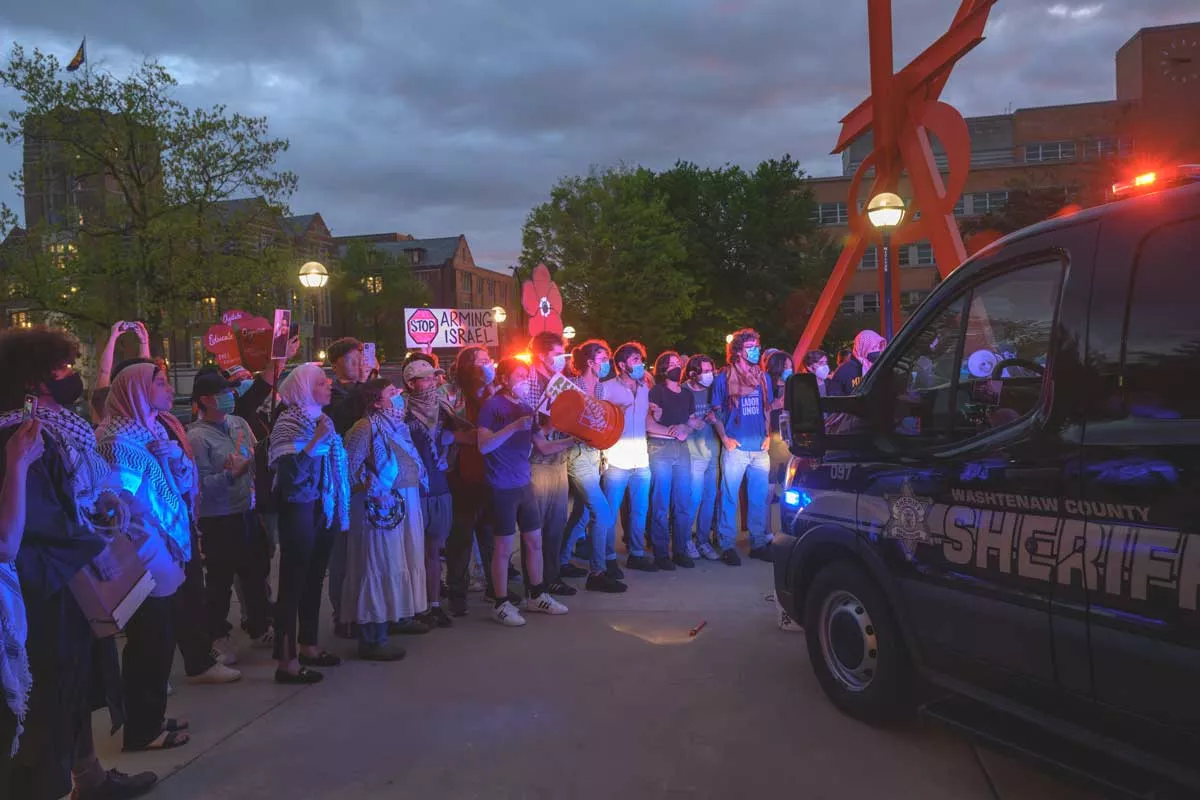 Civil rights groups are calling on Michigan Attorney General Dana Nessel to drop all remaining charges against pro-Palestinian protesters following her unexpected decision Monday to dismiss felony and misdemeanor counts against seven demonstrators arrested during a May 2024 encampment sweep at the University of Michigan. The dismissal, announced during a court hearing in Washtenaw County, marked a significant win for the activists and their supporters after months of mounting political pressure and legal challenges.
Civil rights groups are calling on Michigan Attorney General Dana Nessel to drop all remaining charges against pro-Palestinian protesters following her unexpected decision Monday to dismiss felony and misdemeanor counts against seven demonstrators arrested during a May 2024 encampment sweep at the University of Michigan. The dismissal, announced during a court hearing in Washtenaw County, marked a significant win for the activists and their supporters after months of mounting political pressure and legal challenges.
